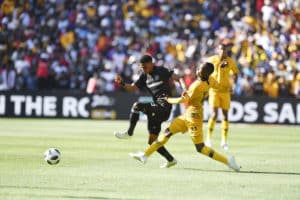Manchester City have reclaimed the Premier League title following Manchester United’s home defeat by Leicester. It is their third domestic crown in four years and fifth since 2012. We look at some key factors in their success.
Who have been the stars of the season?
It has been a true team effort, with a number of players excelling. Ilkay Gundogan has thrived with greater attacking licence, while Ruben Dias has brought confidence and solidity to the defence and brought the best out of John Stones. Phil Foden’s development has continued, with the youngster now delivering consistently well, and Kevin De Bruyne has again been influential. Joao Cancelo has impressed in defence and attack and Kyle Walker has been dependable. There have been other notable contributions throughout the squad, with Riyad Mahrez ending the campaign in fine form and Raheem Sterling and Bernardo Silva also deserving mention. The biggest star has perhaps been manager Pep Guardiola, who has managed the squad superbly and almost been in a league of his own tactically.
How did Guardiola turn it round after a slow start?
It is true to say City did not hit the ground running as they dropped points in five of their opening eight games. Yet Guardiola never gave the impression he was overly concerned as there were clear reasons for this. City’s 2019-20 campaign did not end until August 15 due to their involvement in the Champions League so, with only a short summer break and no pre-season preparations, they were always likely to be slower out of the blocks. Guardiola was also aware of the heightened risk of injuries and fatigue in a condensed schedule. He adapted his side with shrewd selections and clever tactics. While a number of teams hit the top in the early part of the season only to fall away, City paced their challenge brilliantly. With Guardiola also sustaining prolonged runs in three knockout competitions, his management seems all the more impressive.
What were his clever selections and tactics?
Firstly, in those difficult opening months of the season when fitness was lacking, there was a focus on defence. Dias has proved an excellent signing, bringing a maturity to the back line that was absent last season. That brought confidence and everything has grown from there. Guardiola also toned down the high-intensity pressing game of recent seasons to preserve energy. The absence of a recognised centre forward for large parts of the campaign, chiefly due to injury to Sergio Aguero, also forced City to play a different way. Although Ferran Torres proved a useful makeshift striker, it is Guardiola’s use of the ‘false nine’ that has been most eye-catching. De Bruyne, Silva, Mahrez, Gundogan and Sterling have all interchanged in the position and opponents have been unable to keep up. In a broader sense, Guardiola has also rotated well, making numerous changes for each game and managing to keep most of his squad in top form.
When did it all click?
City went 19 games unbeaten in the league from late November to early March but it was not until a 3-1 win at Chelsea in January that momentum really seemed to be gathering. That was a third successive win and undoubtedly gave them confidence. Brighton, Sheffield United and Aston Villa all made City work hard for victories in the weeks that followed but Crystal Palace, West Brom and – in perhaps a decisive blow – Liverpool were thrashed as they took command of the title race. By the time the winning run ended with a derby loss to Manchester United, it was clear where the title was headed.
What was the Everton controversy?
City’s important win at Stamford Bridge on January 3 came eight days after their previous game – a rare break of significance for any side over Christmas, let alone in this unusual season. That gap was due to the game at Everton on December 28 being called off after a coronavirus outbreak at City. Controversy was stoked by Everton issuing a statement calling for “full disclosure” of the facts leading to the postponement. For a while there was a feeling this unscheduled break could be used by cynics to claim City had an unfair advantage, but their subsequent form was simply so good it rendered this irrelevant.





